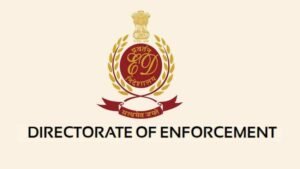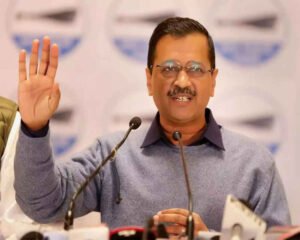The Enforcement Directorate (ED) has summoned Delhi Chief Minister Arvind Kejriwal for the fifth time to appear this week in connection with the federal agency’s money laundering investigation into irregularities in the Delhi excise policy 2021-22, according to people familiar with the matter.
The Aam Aadmi Party (AAP) national convener ignored the previous four summonses — on November 2, December 22, January 3, and January 18 — claiming that the investigation was “illegal and politically motivated”.
In response to the ED’s third summons, Kejriwal said he was willing to assist but claimed the agency intended to arrest him and prevent him from campaigning in this year’s Lok Sabha elections. The agency, on the other hand, has stated that it intends to examine Kejriwal about the creation of the excise policy, discussions conducted prior to its finalisation, and bribery charges.
In its sixth charge sheet issued in the case on 2 December 2023 identifying AAP Rajya Sabha MP Sanjay Singh and his assistant Sarvesh Mishra, ED said that AAP utilised bribes worth ₹45 crore, collected under the scheme, for its assembly elections campaign in Goa in 2022.
What does ED claim?
While ED has previously claimed that bribes earned by the excise policy were utilised to support the poll campaign, this is the first time the agency has specified the amount of the suspected kickbacks and named AAP as a direct beneficiary. These results are anticipated to be used by ED to designate the party in its upcoming charge sheet.
The ED claims that AAP leaders received payments totaling ₹100 crore related to the excise policy.
In one of its five charge sheets, ED stated that the excise policy was Kejriwal’s “brainchild”. Kejriwal has also been cited in remand documents, with allusions to suspected meetings, commissions for private players, and the arrival of politicians and entrepreneurs from the south into Delhi’s liquor bsuiness.
Where does Case Angle goes?
The financial crimes investigation agency has filed six charge sheets against 31 persons and businesses, including former deputy chief minister Manish Sisodia and Singh. Both AAP leaders are now detained in Tihar Jail.

The excise policy attempted to revitalise the city’s struggling spirits industry by replacing a sales volume-based system with a licence charge for merchants. It promised swankier boutiques and an improved shopping experience. For the first time in Delhi, the policy included discounts and special incentives on spirits purchases.
Lieutenant Governor Vinai Kumar Saxena’s decision to launch an investigation into potential regime irregularities resulted in the scheme being scrapped. The AAP accused Saxena’s predecessor, Anil Baijal, of undermining the initiative with a few last-minute tweaks that resulted in lower-than-expected income.
History of Summons and What AAP states?
The ED initially called Arvind Kejriwal on November 2, then again on December 22, and finally on January 3 and 18.
After receiving the latest summons, the legal team of the AAP indicated that they are examining the notice provided by the federal agency and would take a decision in line with the law. “We have received information on the fifth summons. Our legal staff is looking into it, and we will decide what to do based on the law. The prior summonses were unlawful, and we had requested a response from the Enforcement Directorate,” AAP chief national spokeswoman Priyanka Kakkar stated.

Senior AAP officials such as Manish Sisodia, Sanjay Singh, and Satyendar Jain are already imprisoned in the Delhi excise policy case. On December 2, 2023, the Enforcement Directorate (ED) charged AAP Rajya Sabha MP Sanjay Singh and his associate Sarvesh Mishra with using ₹45 crore in policy kickbacks to fund their electoral efforts in the 2022 Goa assembly elections.
Although the ED previously claimed that proceeds from the excise policy were used to finance the election campaign, this is the first time the agency has clearly disclosed the suspected kickback amount and named the AAP as a direct beneficiary. These disclosures are expected to be included in the ED’s upcoming chargesheet against the party.











Comments 1